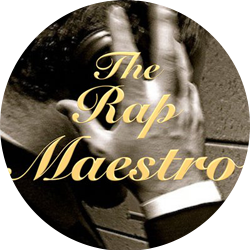The greatest Dr. Dre song of all time, the song on which he achieved perfection, is…
Now, this might be a rather unsurprising winner of our Top 10 list. But let’s go over why it’s so amazing.
First, consider the form. It’s an open-ended, through-composed form, meaning there are no sections that repeat such as a verse or chorus. Each rapper, Dre, then Snoop, then Nate, just rap/sing their verse. It thus is not very repetitive, and stands up to multiple replays.
Second, this song, single as it was, would serve as a great introduction for listeners and critics alike to the new soundworld that Dre was going to be opening up to them. It has everything: the dark, natural minor piano chords, played on a piano that you’d never find in an audio sound world, with the equally sombre, macabre, foreboding bass strings. No dominant buzz synths to be found around here, like “The Chronic” or “Doggystyle” to a lesser extent. The emphasis on melodic instruments rather than the beat (snare, bass, etc.) are all to be identified here.
Finally, though, what makes this song my favorite is its historical context. You have to consider where Dre was at this point in his career: he had already achieved huge fame with NWA, the one band who, more than any other, would go on to give birth to the coming era of gangsta rap through g-funk and other categories. He followed that up with a successful solo album, “The Chronic”, and by launching the solo career of someone whose career is still ongoing and entering his 3rd decade of work, Snoop Dogg (or Snoop Lion, as I hear he’s called now.)
People were wondering, how could he ever top what he’s done so far? How could he live up to expectations? And instead of giving them what they wanted, Dre gave listeners what he wanted. And so you end up with the Holy Trinity of West Coast rap – Dre, Snoop Dogg, and Nate Dogg – putting together a sick song. If ever there were proof that rappers need to roll squad deep in order to be truly bad-ass, it’s this song. It’s the history that each rapper brings to this song that makes it so remarkable. The story each tells is what gives the song narrative depth.
Think of it like this: an author writes a story, a novel, perhaps, about characters. In rap, though, rappers don’t just become those characters in a story they create, they are those characters. They create their own character’s story, their character’s attributes, likes, dislikes, and so on, and then live out their character’s lives on their songs. It’s telling that almost universally all rappers choose different names when they rap – Marshall Mathers becomes Eminem/Slim Shady, Calvin Broadus becomes Snoop Dogg, Curtis Jackson becomes 50 Cent, and so on. Even if the lives of the actual person himself and his rap persona line up at times, such as when Eminem/Marshall discusses his daughter Kim, do we really to believe that these people have killed as many people as they say they have? Of course not. But it’s this suspension of disbelief that makes rap have such levels to it. We don’t have the orienting effect of seeing a character’s story played out on a movie screen that constantly reminds us we’re watching a movie, or the physical pages in a book that remind us that we’re reading something written by someone who is not in the story. There is nothing to check the rapper’s facts against, certainly because we don’t know them as people, so we accept what we hear as real, unconsciously or consciously.
And this is the story that I most enjoy about Dre. At this point in time, he is The Godfather of rap. He has given birth to the next generation of music, a musical scene that will dominate for 20 years (gangsta rap.) His prodigy, Snoop Dogg, multi-platinum album seller, backs him up on this. And then Nate Dogg jumps on and explains what it’s really all about.
I’ll be doing a summary of the Top 10 list, such as why certain things fell where, along with honorable mentions, in another post coming up soon.
Hope you enjoyed it!

